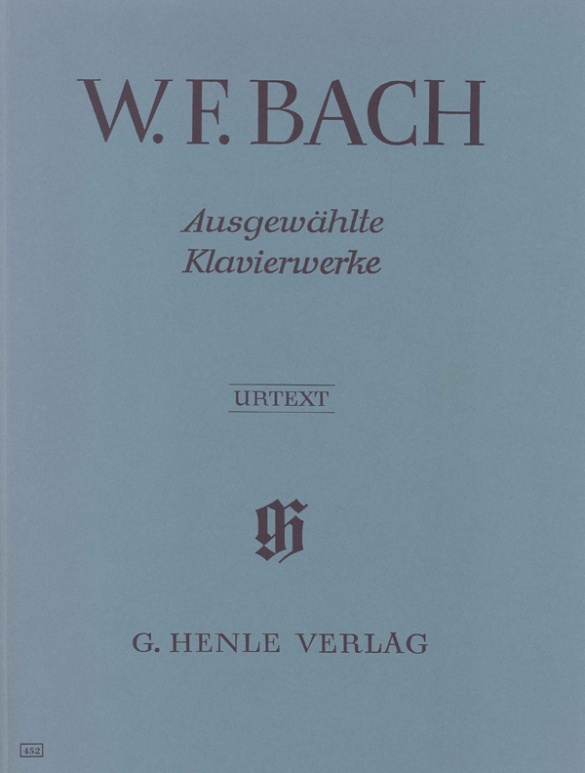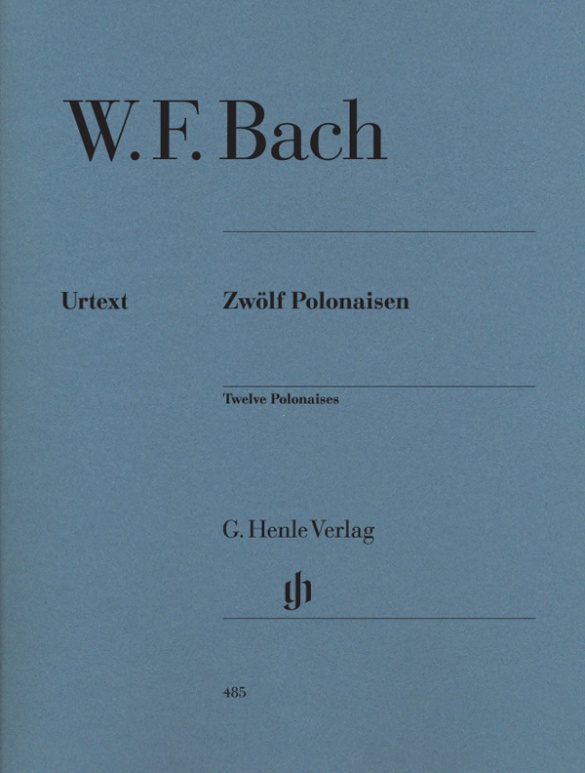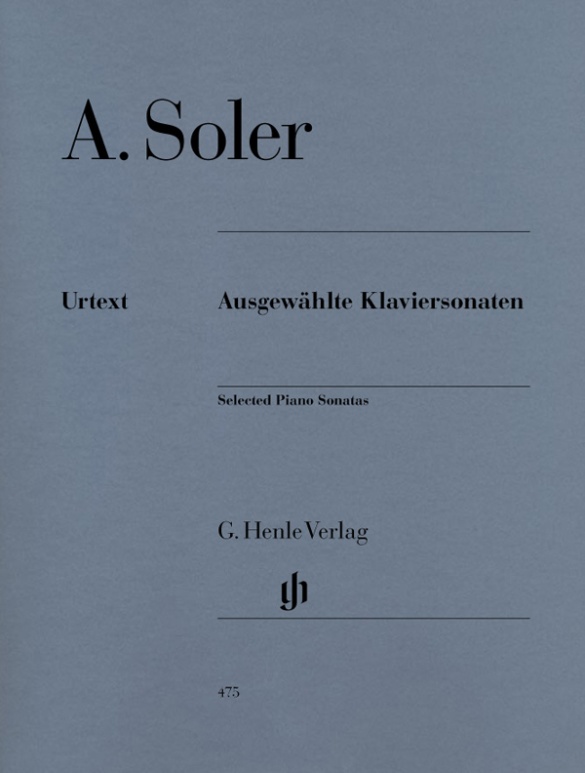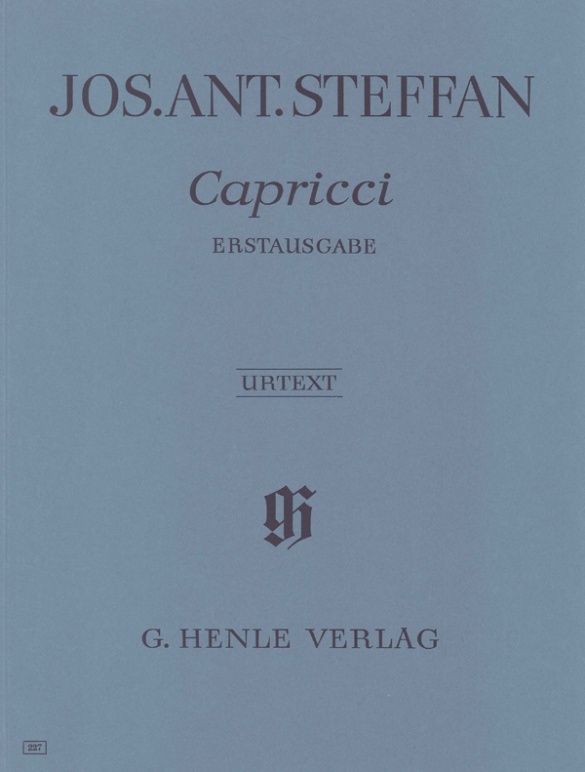Wilhelm Friedemann Bach
Selected Piano Works
Wilhelm Friedemann Bach was Johann Sebastian Bach’s eldest son and more closely linked to the spirit of baroque music than were his younger brothers. In our anthology of three keyboard sonatas, two fantasias and a suite, the keyboard composer stands on the threshold of freer forms and harmonies. The Suite in G minor is still informed by the baroque. The two Sonatas in D major, with their galant, capricious idiosyncrasies, demand great attentiveness from the player, while the E flat major Sonata, published in 1748, already anticipates Haydn in the elaboration of its themes. In the Fantasias in a minor and c minor, the liberating powers of the time seem to take hold. The fingerings in the present Urtext edition are by pianist and veteran pedagogue Klaus Schilde, whose name has appeared on numerous G. Henle editions.
mws-henle.cms.title-works.headline
mws-henle.cms-product-detail.composer-headline
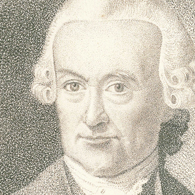
Wilhelm Friedemann Bach
A German composer, organist, and the eldest son of Johann Sebastian Bach. Educated by his father, he numbered among the most popular organists of his day. As a composer he initially drew upon older musical forms, but increasingly yielded to elements of Classicism over the course of his creative life. He wrote, among other things, virtuosic works for keyboard instruments including important concerti for harpsichord, cantatas, chamber music, and orchestral works.
| 1710 | Born in Weimar on November 22. |
| 1717–23 | He (probably) attends the Lutheran grammar school in Köthen. |
| 1720 | On January 22, his father compiles the Clavier-Büchlein (Little keyboard book) for Wilhelm Friedemann Bach. It documents his earliest musical progress and contains his first attempts at composition. |
| 1723 | The family moves to Leipzig, where on June 14 he becomes a pupil at the Thomasschule. |
| around 1726 | He receives violin lessons from Johann Gottlieb Graun. |
| 1729 | On March 5 he matriculates at the law faculty of the University of Leipzig. |
| 1733–46 | On August 1 he becomes organist at St. Sophia’s Church in Dresden. He becomes involved in the musical life of the Dresden court and socializes with members of the nobility interested in music and to whom he dedicates some of his compositions. |
| 1746–64 | He is organist at the Liebfrauenkirche in Halle/Saale, writing many cantatas. Tensions in his work environment lead him to resign. |
| from 1764 | He attempts to secure his family’s livelihood by giving private lessons. |
| from 1774 | He settles in Berlin, and consolidates his reputation as a virtuoso concert organist and improviser. |
| 1784 | Destitute, he dies in Berlin on July 1. |
mws-henle.cms-product-detail.author-headline

Klaus Schilde (mws-henle.person.role.FINGERSATZ)
Prof. Klaus Schilde, born in 1926, spent his childhood in Dresden. There he was greatly influenced by Walter Engel, who taught him the piano (Kodaly method), composition and violin. From 1946–1948 he studied at the music conservatory in Leipzig with Hugo Steurer. After moving to the west in 1952 he studied with Walter Gieseking and Edwin Fischer, as well as with Marguerite Long, Lucette Descaves and Nadia Boulanger in Paris.
Schilde won numerous prizes. From 1947 onwards he gave concerts as a soloist and chamber musician on almost every single continent with renowned orchestras. He taught at the music conservatories in East Berlin Detmold, West Berlin, Munich, Tokyo (Geidai) and Weimar. From 1988–1991 he was President of the Staatliche Hochschule für Musik und Theater in Munich, where he also taught for decades as a professor. There are numerous radio and television broadcasts with Klaus Schilde as well as CD recordings. Schilde has contributed fingerings to almost 100 Henle Urtext editions.
Prof. Klaus Schilde passed away on 10 December, 2020.
Product Safety Informations (GPSR)

G. Henle Verlag
Here you can find the information about the manufacturer of the product.G. Henle Verlag e.K.
Forstenrieder Allee 122
81476 München
Germany
info@henle.de
www.henle.com
推荐
autogenerated_cross_selling
本书目其他版本
本书目其他版本


